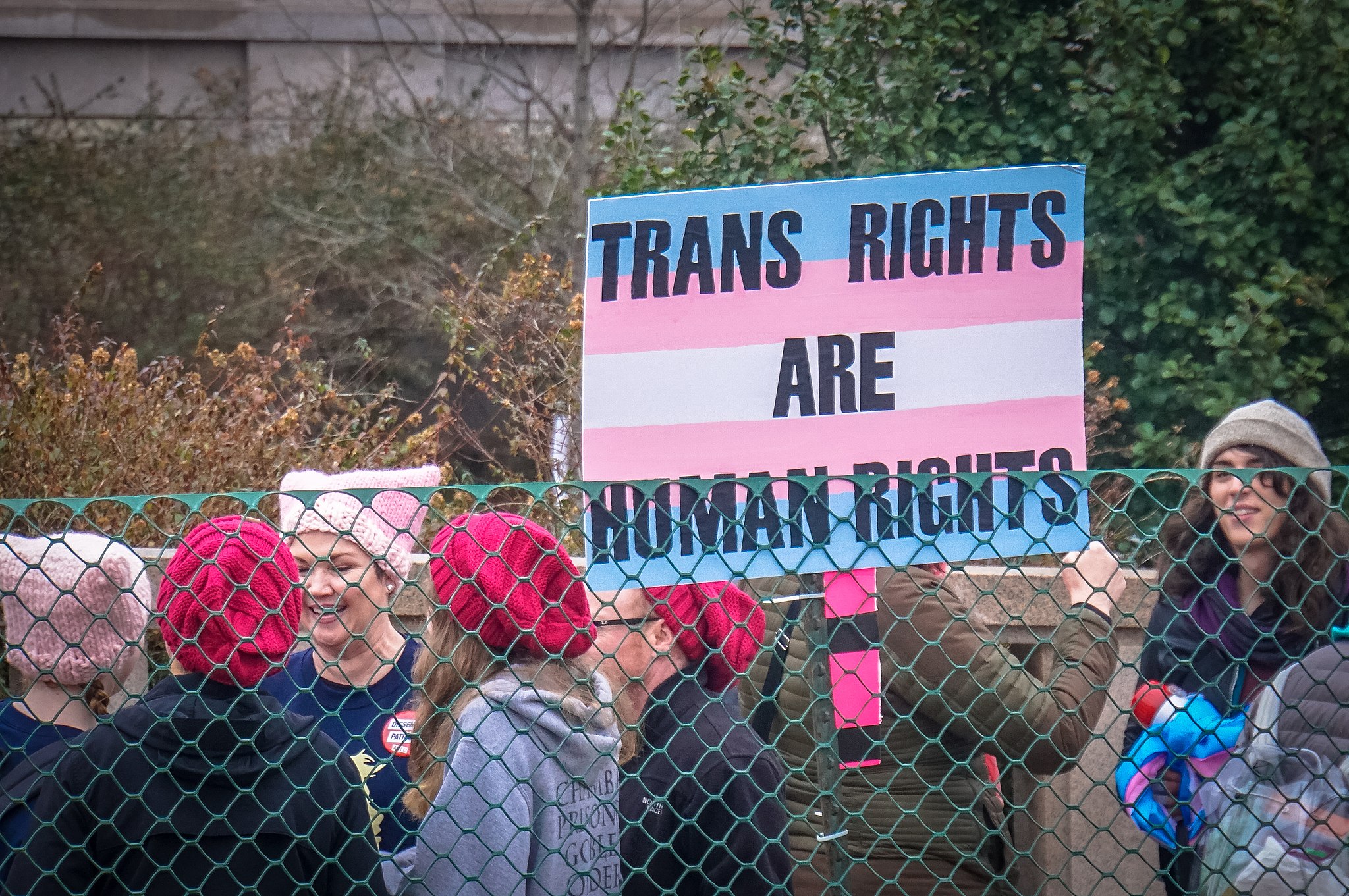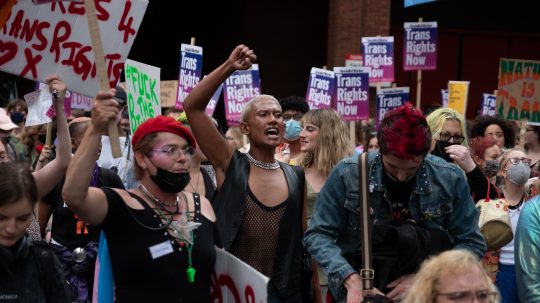On 21 February 2023, the minister for women and equalities, Kemi Badenoch, wrote to the Equality and Human Rights Commission (EHRC) to ask for advice on the definition of the protected characteristic of ‘sex’ in the Equality Act 2010.
The letter was written as Badenoch considers trying to change the Equality Act in a way that would allow organisations to bar trans women from single-sex spaces and events. These have been reported to include sports matches and hospital wards.
The change by the equalities minister would redefine sex in the 2010 act specifically to refer to legal protections for “biological sex” – the sex assigned at birth.
Badenoch’s potential changes to the Equality Act have been criticised as waging a culture war against the trans community. Badenoch, who is also the Secretary of State for the Department for Business and Trade and Secretary of State for International Trade, was reappointed as Minister for Women and Equalities in October 2022.
Records indicate that Badenoch has never voted in Parliament on equal rights for gay people and has never voted on allowing marriage between two people of the same sex.
In 2022, letters obtained in an investigation by Vice revealed that while in her position as equalities minister, Kemi Badenoch, along with Marcial Boo, chief executive officer of the Equality and Human Rights Commission (EHRC), wrote to the Financial Conduct Authority (FCA) to question its plans to allow trans people to ‘self-identify as male or female in their workplaces’.
The EHRC’s response has come under fire
Section 11 of the Equality Act 2006 allows the Equality and Human Rights Commission (EHRC) to advise the UK government on the effectiveness of equality law.
We have provided advice to the Minister for Women and Equalities on the definition of the protected characteristic of 'sex' in the Equality Act 2010.
Find out more: https://t.co/EVpO3EQoaf pic.twitter.com/1xAKhKhdjY
— EHRC (@EHRC) April 4, 2023
The chair of the EHRC, Baroness Kishwer Falkner, said: “A change to the Equality Act 2010, so that the protected characteristic of ‘sex’ means biological sex, could bring clarity in a number of areas, but potential ambiguity in others.”
The EHRC states that it has urged the UK government to identify and consider the potential implications of any changes to the Equality Act, including any possible implications for trans individuals. The body has also reminded the government that any legal analysis must be in compliance with the Public Sector Equality Duty.
Baroness Falkner stated: “There is a clear need to move the public debate on issues of sex and gender to a more informed and constructive basis. This would be welcomed by the many who do not take the polarised positions currently driving public debate.”
The potential change has been labelled ‘nonsense’ and ‘legally illiterate’
Grey Collier, advocacy director of Liberty and former legal director of the EHRC, called the suggestion “nonsense” and “legally illiterate”.
“The proposed change in the law is nonsense on stilts. The suggestion is legally illiterate, unworkable and is just another way of using trans people’s actual lives as a pawn in the culture wars. It would overturn some of the purposes of the Gender Recognition Act and make it possible to discriminate against trans people in a whole range of circumstances where it is currently outlawed,” he said.
Stonewall, the LGBTQ+ charity, released a statement saying: “The Equality Act has been working well for 13 years. Trans people have been using spaces aligned to their gender for even longer without issue. We must see through ‘culture wars’ that use trans lives as a political football, and keep fighting to protect our hard-won rights.”
“Trans rights are under attack. At a time when the trans community is facing rising hate, excluding trans women from women’s spaces would represent an appalling rollback and make it impossible for trans people to simply exist without fear.”
A petition, which has received over 134,000 signatures, was set up in opposition to amendment to the Equality Act’s definition of sex. In January, the Cabinet Office responded to the petition stating:
“We are committed to upholding Britain’s long-standing record of protecting the rights of individuals against unlawful discrimination. The government is also committed to maintaining the safeguards that allow organisations to provide single-sex services. It is important that the principle of being able to operate spaces reserved for women and girls is maintained, in line with the Equality Act.”
Meanwhile, two legal challenges are underway
A petition for judicial review will see Scotland’s new first minister Humza Yousaf challenge the government in Westminister after it blocked Holyrood passing the Gender Recognition Reform (Scotland) Bill. The Bill would have meant people could legally change their gender in Scotland without a medical diagnosis of gender dysphoria. The bill was stopped by the UK government, with ministers in London claiming it would have a “significant impact” on equalities nationwide.
In February, The Good Law Project received permission to appeal an important decision regarding trans healthcare. The High Court had initially rejected a challenge to delays faced by the trans community when trying to access healthcare from NHS England. The Good Law Project are now fundraising to help fund the appeal.





